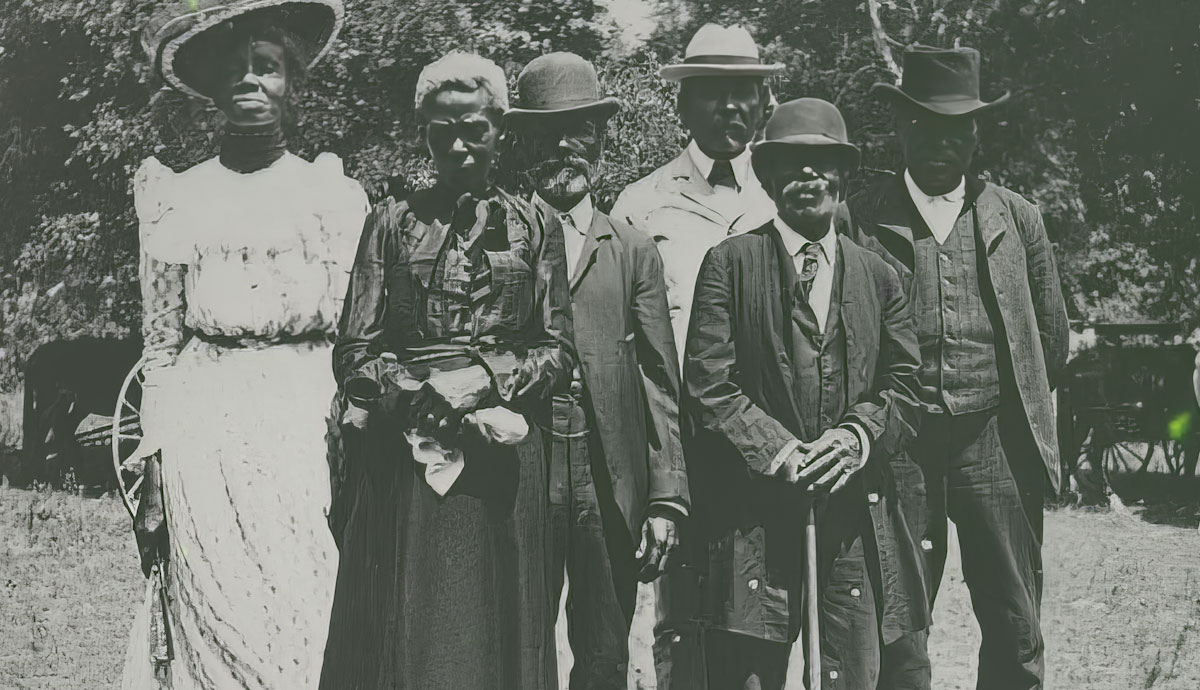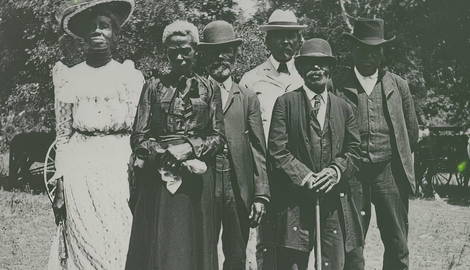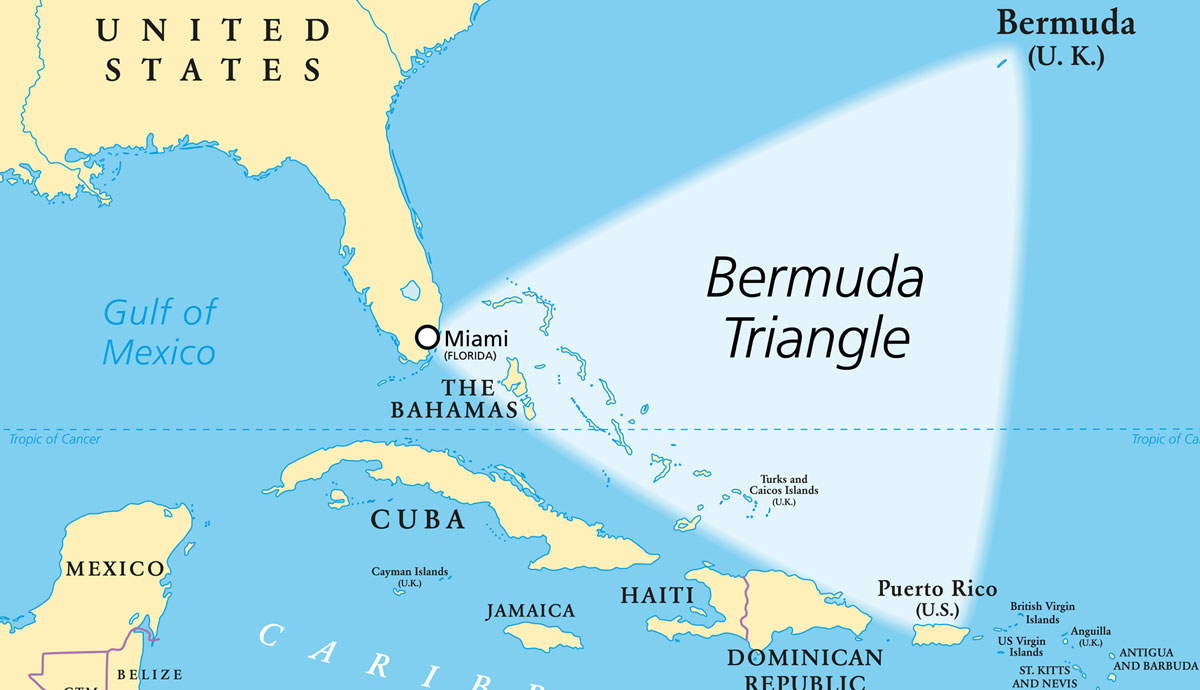
Juneteenth is the celebration of emancipation for enslaved African Americans. On June 19th, 1865, enslaved Texans in Galveston Bay were finally informed of their freedom. This holiday was coined Juneteenth during the Reconstruction period and allowed African Americans all over America a day, especially for their independence. It is celebrated as the official end of slavery in the United States, as enslaved Texans were the last to hear of their freedom. The holiday has been recognized for over a century and a half and was more recently declared a federal holiday in the United States.
The Origins of Juneteenth

On June 19th, 1865, some 2,000 Union troops, led by Major General Gordon Granger, landed at Galveston, Texas, and informed the enslaved people there that the Civil War was over, and they were finally free. This announcement occurred two and a half years after President Abraham Lincoln declared the Emancipation Proclamation and freed all enslaved people.
Union troops, many African American, spread throughout the South after this announcement, informing enslaved compatriots of their liberation. However, the war still raged on, and it wasn’t until April 1, 1865, when General Robert E. Lee surrendered to the Union, that news could travel far enough west to reach enslaved Texans.
The reason for this delay is not altogether apparent. Many theories have surfaced over the century and a half since. These range from the messenger sent to Texas with the news of freedom being murdered before he could reach the westernmost Confederate state to federal troops waiting so that enslavers could reap a last successful cotton harvest to enslavers deliberately withholding the news of emancipation to keep their plantations running. Historians disagree on why the information about emancipation took so long to reach those enslaved in Texas. Still, many think it may have also had to do with Texas’ dismissal of Lincoln’s power over the state, as it was a part of the Confederacy. Regardless of the reason for the delay, Texans were enslaved for much longer than was necessary, and their emancipation signaled the actual end of enslavement in the United States.

After the surrender of the Confederacy, Union troops finally had the strength and the ability to break into the bubble of rebellious states. When Major General Granger landed in Texas, his first order of business was to read General Order Number 3, which stated:
The people of Texas are informed that in accordance with a Proclamation from the Executive of the United States, all slaves are free. This involves an absolute equality of rights and rights of property between former masters and slaves, and the connection heretofore existing between them becomes that between employer and hired laborer.
Formerly enslaved people reacted in various ways to this newfound independence. Of course, there was joy, but there was also shock. In one day, the lives of over 250,000 people were drastically altered. This prompted various actions among the former enslaved. Many stayed in Texas and decided to take up their former masters’ offers of actual employment. Some ran as soon as they possibly could. To many, leaving the plantations they were enslaved on, regardless of whether or not they had an end destination was the first step into a life of freedom. Most went North, but some lived free lives in bordering emancipated states, such as Oklahoma, Louisiana, and Arkansas.
Every year after that day in 1865, Black Americans gathered to celebrate and remember Juneteenth. They recognized the new challenges and advantages of being free and used Juneteenth as a memorial to their former lives and the massive impact of liberation.
Juneteenth Celebrations & Festivities

Celebrations of Juneteenth involve many things, but most of all, it is a time for African Americans to remember the joy of emancipation. It is a day to remember when the entire population of the United States was finally independent. The activity of most importance for Juneteenth is gathering together. In 1872, African American Reverend Jack Yates purchased a ten-acre tract of land in Houston through a fundraiser, naming it Emancipation Park and designating it as a site to come together for the annual Juneteenth celebration. This was the earliest land designation of its kind in the United States.
Much of Juneteenth also revolves around education and remembrance. For this reason, guest speakers and, at the time, formerly enslaved people recounted stories and events of the past for attendees. Additionally, prayer services were a traditional element of these gatherings.
Food was always a vital part of Juneteenth. Those celebrating could eat pork, lamb, chicken, and beef, all while being reminded of the smells and tastes that their ancestors experienced during those first days of freedom and celebration. The main event was the barbecue pit and the various foods and memories it produced.
In addition to food, the dress was a traditional and revered element of Juneteenth celebrations. During their enslavement, African Americans were prohibited, often by law, from wearing or not wearing certain items of clothing. In the days that followed emancipation, formerly enslaved people were said to have thrown away their ragged garments and dressed to the nines in the clothes abandoned at former plantations by their former enslavers.
The Decline & Resurgence of Juneteenth

For the most part, celebrations were concentrated in African American communities with little outside interest. During the late 19th century, workers were often given a day off for Juneteenth, allowing them to celebrate with family and friends. Sometimes, employers even donated money and food to the celebrations. Annual celebrations, such as the one in Mexia, Texas, were well attended for many years, attracting more than 20,000 African Americans in a week.
As the 20th century came, so did a decline in interest in Juneteenth. Many children began attending public schools, where the curriculum focused less on family stories and cultural retellings. The Emancipation Proclamation, on January 1, 1863, was declared the official date of the end of enslavement. The public memory of Major General Granger faded.
Furthermore, as African Americans moved into cities and took jobs outside of farming operations, employers were less likely to be accommodating to the impact of Juneteenth as a holiday for African Americans. As far as employers were concerned, the official Independence Day of the United States was already a day off to celebrate the United States’ liberation from England. By the interwar period, rising patriotism and the inability of people to participate in Juneteenth celebrations led toward a rise in simply celebrating the 4th of July as the only Independence Day.

In the 1950s and 60s, there was a resurgence in interest surrounding Juneteenth. This was due, in large part, to the activism within the Civil Rights Movement. Many young people were more interested than ever in their heritage and in celebrating Black culture. These Civil Rights activists were inspired by their ancestors, who, like them, struggled against oppression for their rights. In identifying with their predecessors, a renewed zeal for celebrating the wins of Black Americans against discrimination came into the zeitgeist.
This was apparent in many ways during the movements of the 1960s. Atlanta demonstrators wore Juneteenth buttons, and the Poor Peoples March on Washington DC in 1968 sparked interest in celebrating Juneteenth in areas where it had never been observed. The activists responsible for the Civil Rights Movement thus ushered in a new era of remembrance related to Juneteenth and the celebration of their roots.
In 1980, Texas became the first state to codify Juneteenth as a holiday with legislation. Al Edwards, a Texas legislator, was responsible for the first official state recognition of the emancipation day of enslaved Texans. Since then, the holiday has only grown in significance in the larger public sphere.
Juneteenth Today & its Significance

Before being federally recognized, Juneteenth was recognized in some form by every state in the Union. Today, it is a celebration of Black culture and achievement and the recognition of African Americans’ official emancipation from enslavement. Galveston is still a bustling hub of celebration for the holiday, and in 2022, the city held a picnic, poetry festival, banquet, and parade. Atlanta organized a music festival and parade, and many cities across the nation followed suit with similar events.
In 2020, nationwide protests against police brutality and violence toward people of color took center stage. Conversations surrounding systemic racism within the very fabric of the United States became commonplace in a way they never had before. Americans were educating themselves, and with that came an increased interest in federal recognition of Juneteenth. In the summer of 2021, legislation was pushed through the House, wherein 415 out of 435 representatives voted to make Juneteenth a national holiday. On June 17th, 2021, President Joe Biden signed the recognition of Juneteenth into law, making it the 11th federal holiday in the United States, almost exactly 156 years after General Granger proclaimed that the last enslaved people in the United States were free at last.







